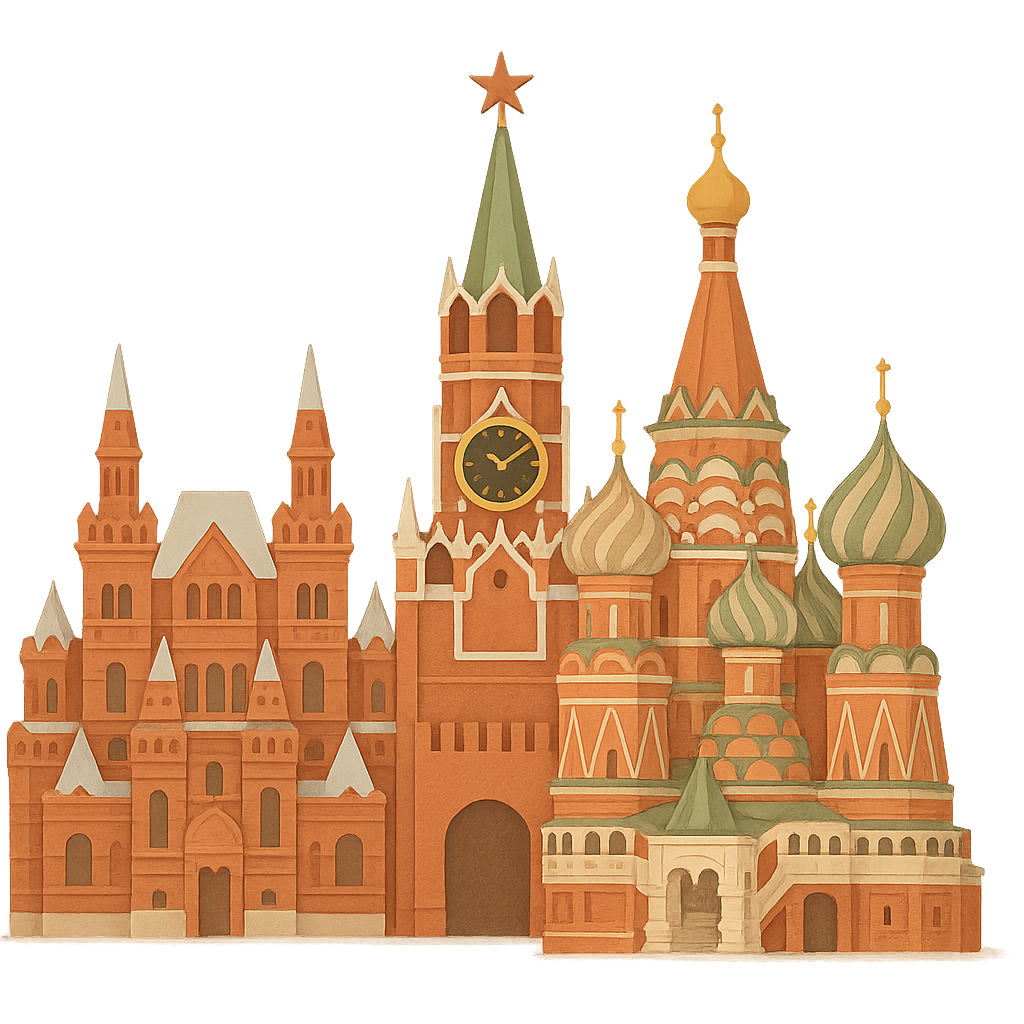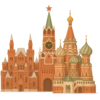The Beautiful Heart of Moscow
Feel the rumble of a thousand footsteps on my cobblestones. For centuries, they have been worn smooth by history itself. Look up, and on one side you will see tall, crimson walls topped with pointed towers that guard a mighty fortress. On the other side, a fantastic cathedral bursts into the sky, its domes shaped like colorful, swirled candy, each one a different pattern of red, blue, green, and gold. I am a wide-open space, a giant stone carpet spread out in the center of a great city, where stories echo in the wind. Long ago, my name was 'Krasnaya Ploshchad.' In old Russian, the word 'krasnaya' didn't mean red—it meant 'beautiful.' I have always felt that name was just right, because I have seen so much beauty in my long life. I am Red Square, and I am the heart of Moscow.
My story was written in stone over 500 years ago. It began around the year 1493, when a powerful ruler named Ivan the Great looked at the cluttered wooden buildings next to his grand fortress, the Kremlin, and had an idea. He worried that a fire could easily spread and damage his home. So, he ordered the area to be cleared, creating me—a vast, open space to protect the Kremlin and to serve as a bustling marketplace. In my early days, I was filled with the noisy chatter of merchants selling furs, honey, and fabrics. Then, a new ruler, known as Ivan the Terrible, wanted to build something magnificent to celebrate a great military victory. In 1561, the final dome was placed on the most wonderful building I had ever seen: St. Basil's Cathedral. Its onion-shaped domes and bright colors made me feel like I was standing next to a fairytale castle. Over the centuries, other amazing neighbors joined me. A grand building that looks like an ancient Russian palace, the State Historical Museum, was built to hold the country's treasures. Across from the Kremlin, a spectacular shopping palace with a roof made of glass, called GUM, was built, where people could walk and shop even when it snowed.
Today, the merchants with their carts are gone. I am no longer a marketplace for goods, but a gathering place for people and their happy memories. In the winter, my cobblestones are often covered with a sparkling ice rink, where families skate under twinkling lights while festive music fills the air. In the summer, famous singers perform on huge stages, and their songs echo off the ancient Kremlin walls. I have seen solemn parades and joyful concerts, quiet visitors and cheering crowds. I am a place where people from every corner of the world come to stand in awe of the history that surrounds them. I am the heart of Moscow, a place where the past is always present, and every person who walks across my stones becomes a part of my beautiful, ongoing story.
Reading Comprehension Questions
Click to see answer



